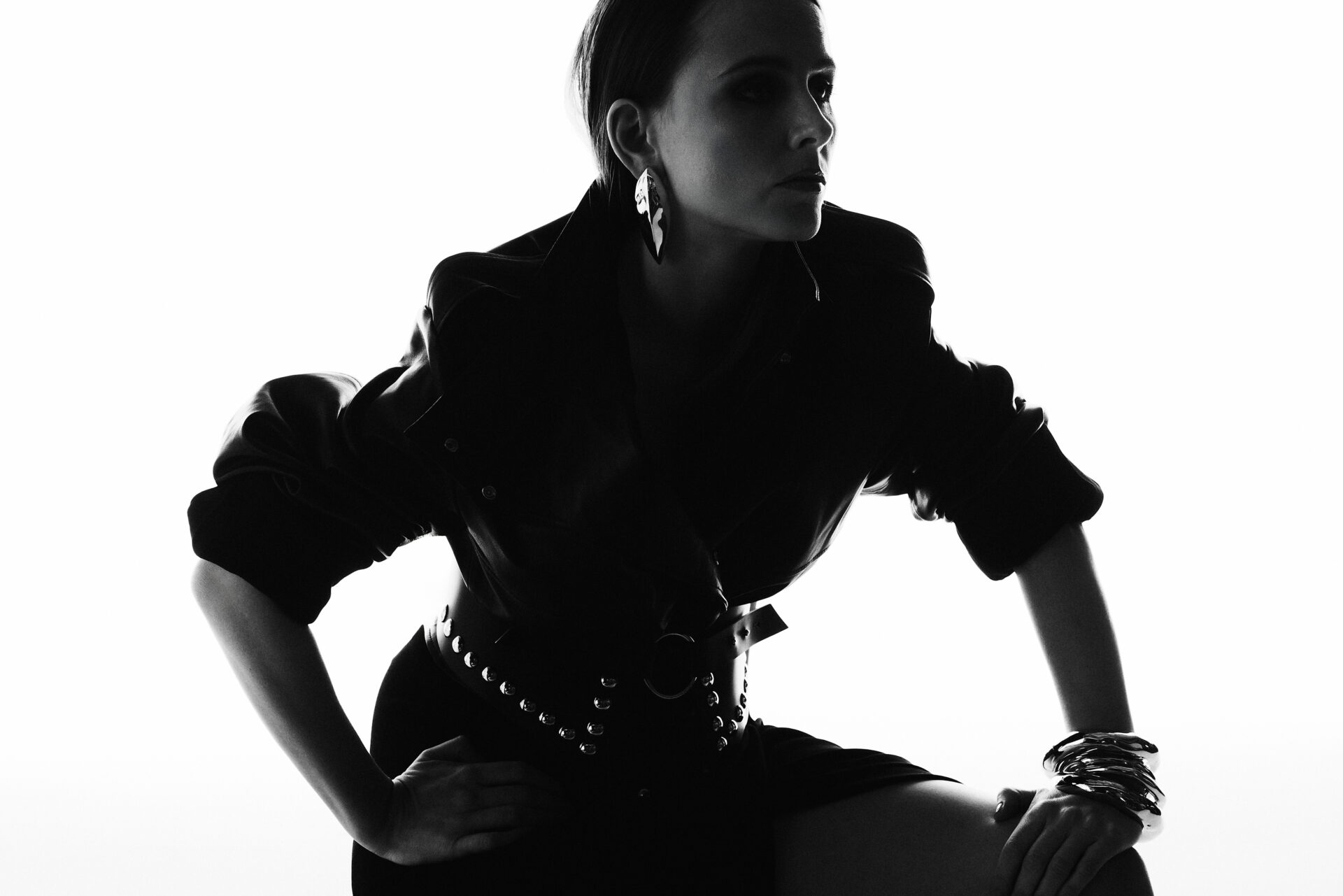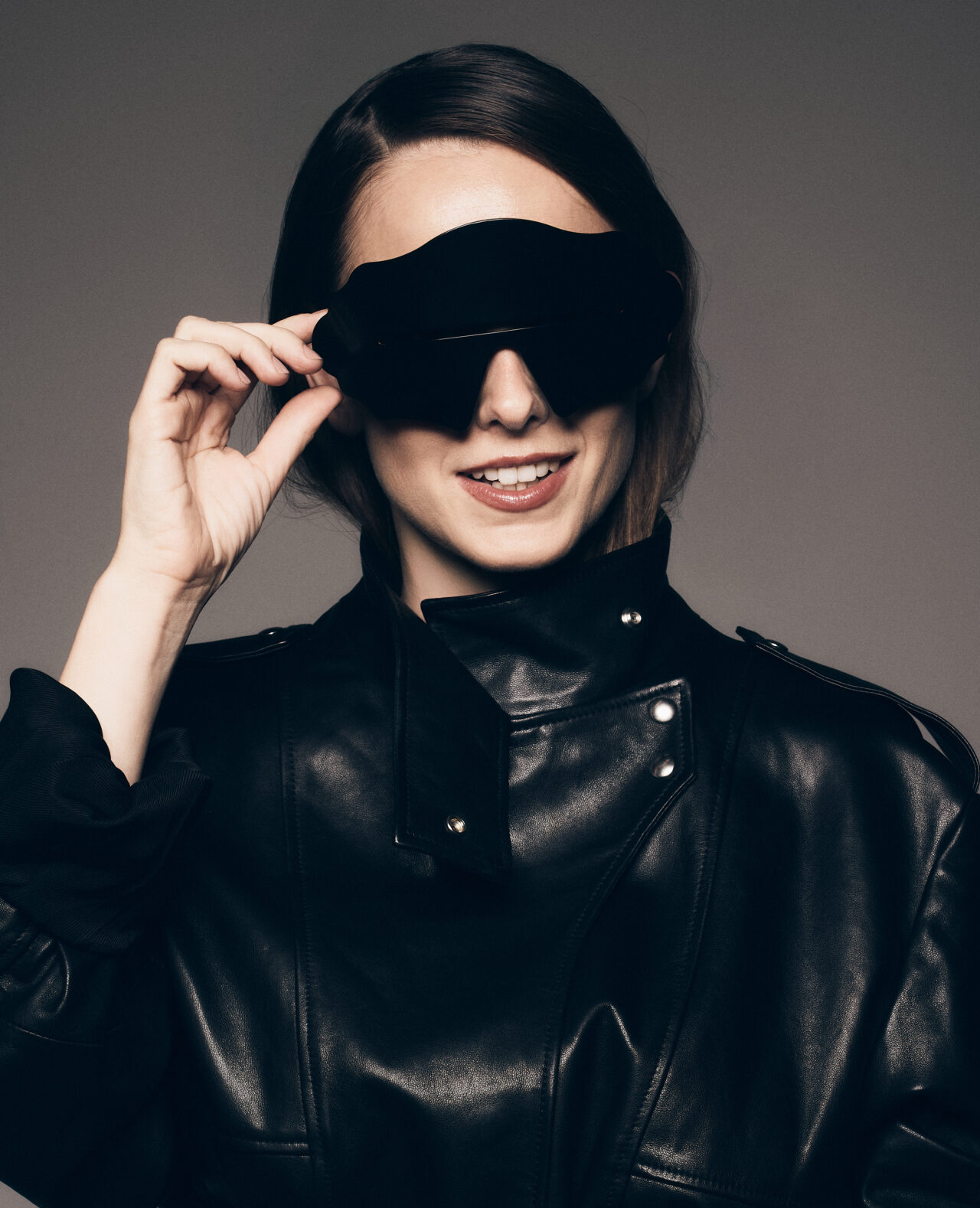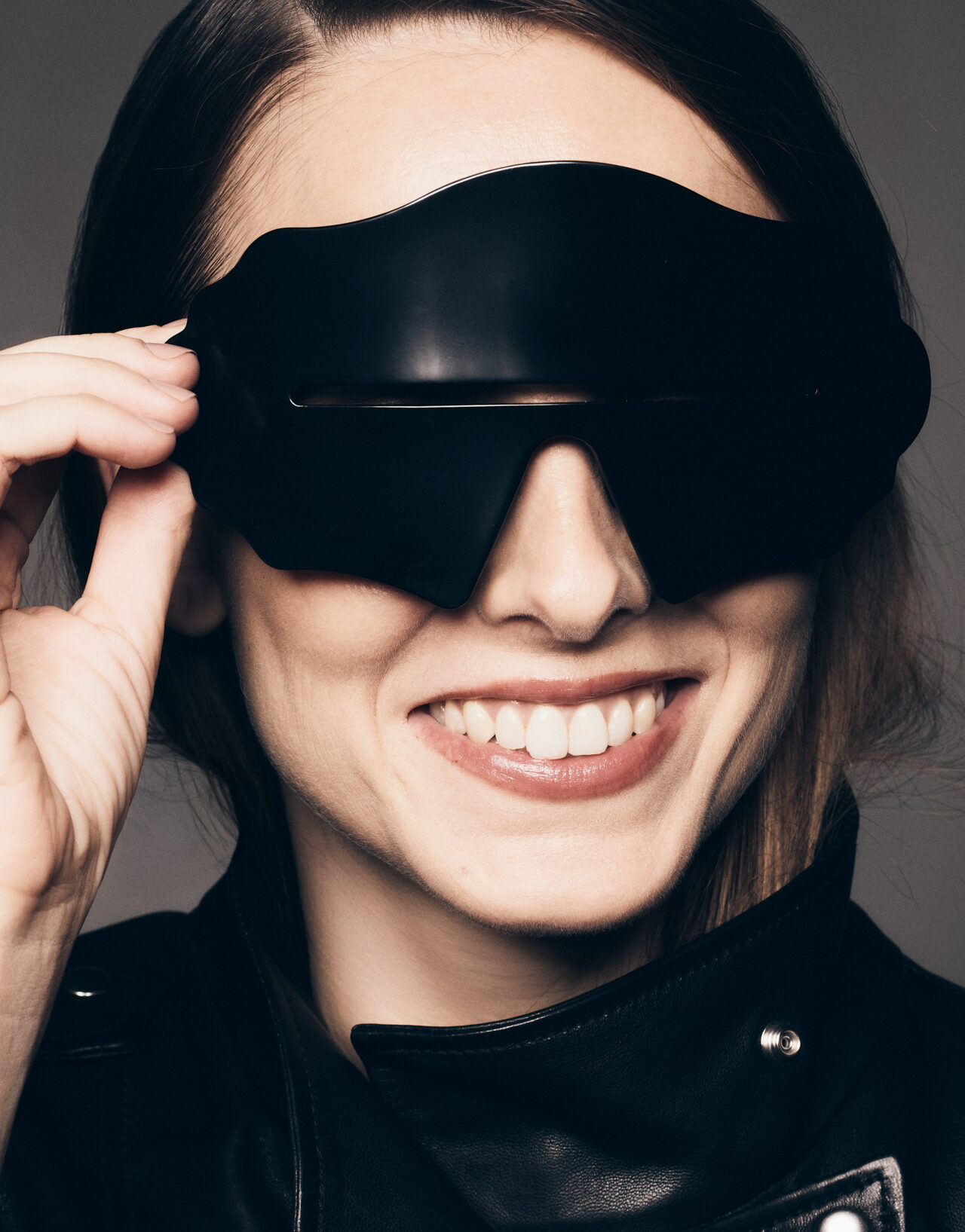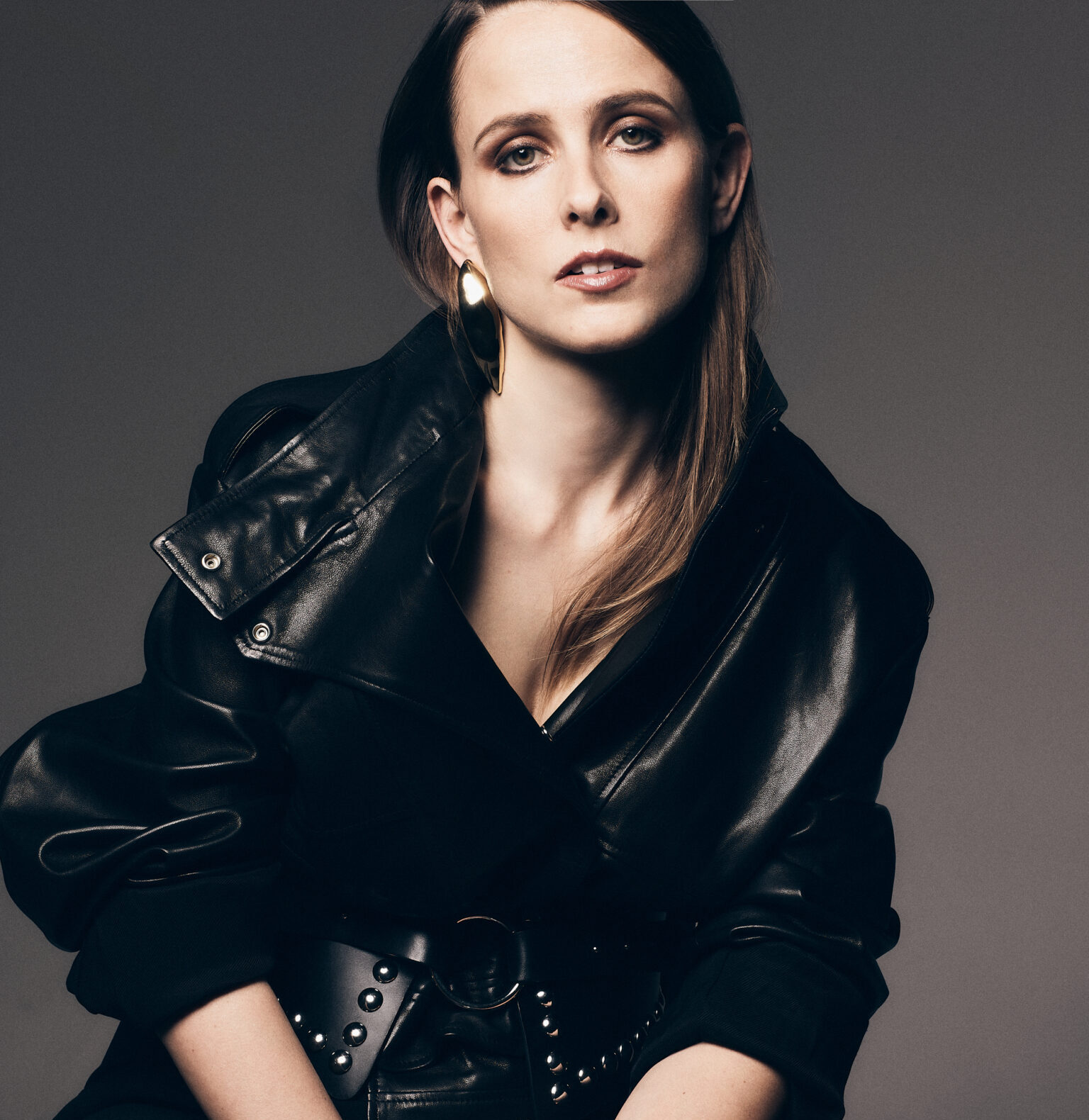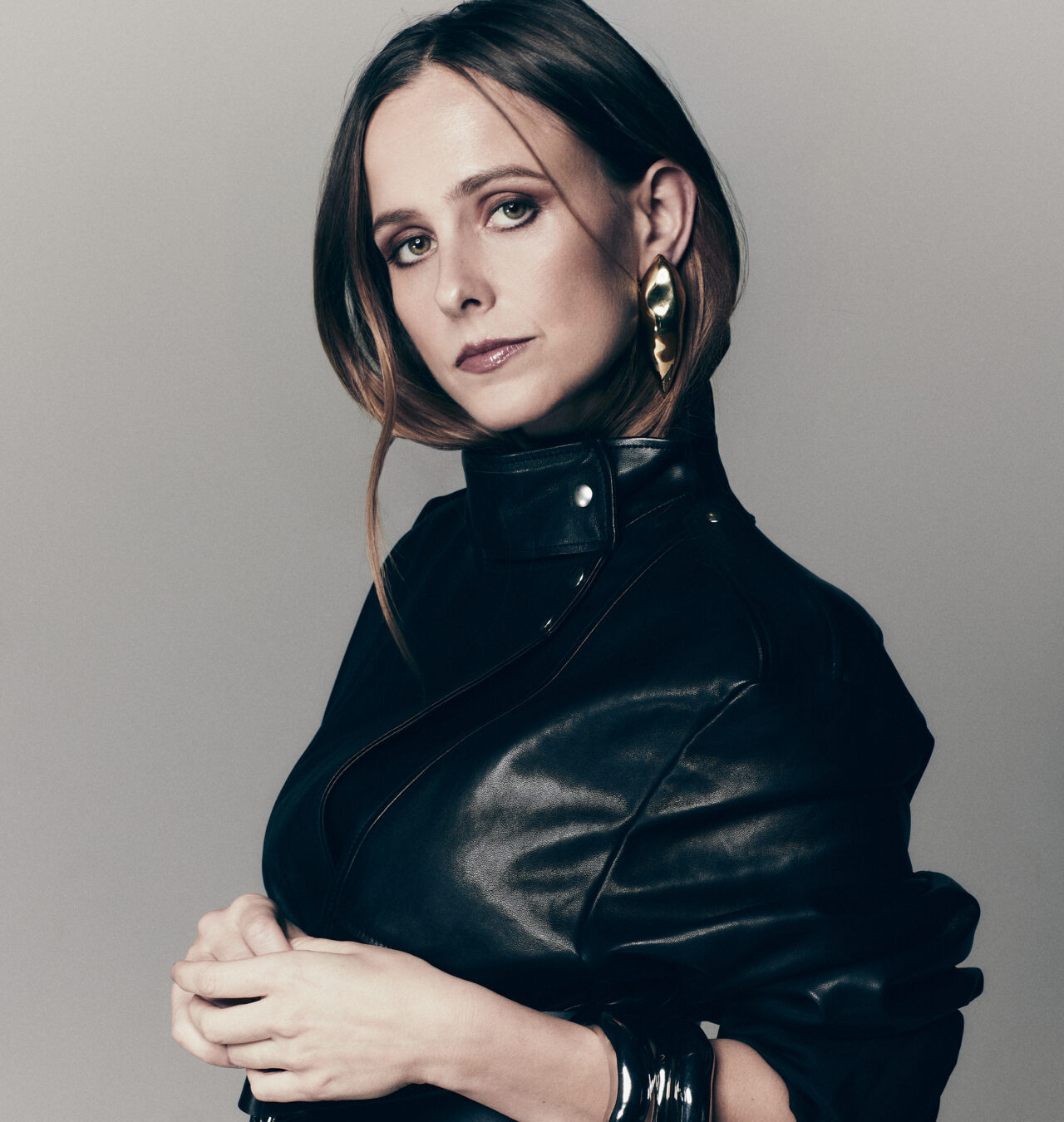Finding peace and purpose with Pauline Chalamet
WRITER: Chris Saunders
Pauline Chalamet is in a season of her life where peace is the priority. As a new mother, it’s no surprise that she’s embracing a slower rhythm – one that, for her, is best found in Paris. When she joins our Zoom call, settled into a chair that radiates ease even through the screen, there’s a quiet assuredness about her. With political unrest gripping the U.S., France – though not without its flaws – offers a stability and sense of community that resonates deeply with her values.
Though Paris is now home, Chalamet’s career has taken her across the world. Best known for her role as Kimberly Finkle in The Sex Lives of College Girls, she quickly became a fan favourite, striking the perfect balance between comedic awkwardness and heartfelt sincerity. But while the HBO series introduced her to a wider audience, her creative journey has been anything but conventional.
Raised in a family steeped in the arts, Chalamet’s first creative discipline was ballet – a world of rigorous precision and unrelenting passion. Yet, it was acting that ultimately captured her imagination, offering a space to explore different perspectives and embody complex characters. After studying theatre and political studies at Bard College – a place that, as she later jokes, “taught her how to read” – she gravitated toward independent cinema, drawn to its intimacy, rawness, and unpredictability.
Her early career unfolded in a patchwork of short films and experimental projects, where she honed her craft both in front of and behind the camera. That hunger for creative autonomy eventually led her to co-found Gummy Films, a production company dedicated to telling offbeat, audacious stories. Even as her profile grew, she remained committed to projects that felt personal, seeking out filmmakers who shared her vision for nuanced, unconventional storytelling.
Now, fresh from collaborating with French fashion house Patou on a series of short films, Chalamet finds herself in conversation with one such filmmaker: Janicza Bravo (The Listeners, Zola, Lemon, Atlanta). Known for her razor-sharp storytelling and singular visual language, Bravo’s work – spanning film, theatre, and television – has long been a source of admiration for Chalamet. What follows is a conversation about art, ambition, and the unexpected ways their creative paths have intertwined.
Pauline Chalamet: How did we first meet? I think it was the time I went to the first fashion show [Patou] ever had, and I met Deborah, who was their PR. She was talking about who were friends of the brand, and she said you were. And I said, “Janicza is my idol, the person I want to meet more than anyone”. And she said, “Oh, I invited her to the show – hopefully, you guys will be able to meet.” But I think you were working, and we didn’t get to meet at that first show. But then we met at someone’s birthday party. And then we saw each other again at the next Patou show. You don’t understand how much I was freaking out.
Janicza Bravo: So this interview for you is actually just you telling me that you like me?
PC: Exactly. I actually just finished watching The Listeners. But I think the first things I watched of yours were short films that were on the Criterion Channel. And I was like, “Who is this person?” And there was Pauline Alone. They were all so good. And I was like, I need to meet this person. Lemon had already come out, so then I watched Lemon, and then my whole life energy was going toward meeting you. And then we met at the thing, and you thought you were meeting Kimberly Finkle.
JB: No, I mean, I was meeting the real person, but I was just so excited because I really love TV. I OD on TV. I remember Jeremy O. Harris telling me, “Oh, I think you would really like this show.” I think I had asked him, “I just need something. I need content”.
It was also really wild to be watching it as the political climate was changing in the U.S., because the show paints a picture of a very inclusive world. And I found it was making me a little sad. Because I thought, there’s been this question of “Is the work going to change over the next four years?” due to what’s about to happen.
PC: Yeah, I think that’s very interesting. I think it was a very big wish of how a college campus could be. Because even though I believe that through it all, we will continue to make progress, pendulums swing from one extreme to the next. And it’s very easy to feel like this has never happened before, but that feeling is actually kind of dangerous. Because things like this have happened before. And I think that what Justin and Mindy did with the show is, they really created what Justin wished his college experience had been like. But the truth is, no college campus is as inclusive, as joyous, and as filled with as many incredible themed parties as Essex. But it gives you this utopia, in a way. It’s weird to exist in this space where we’re so accepting of all these things and then go back to reality, where Donald Trump is about to start a second term.
JB: It created a real bubble. It was already a bubble, obviously, but it really felt like one. It felt like I was watching a daydream. I was like, “Oh, that feels imagined.”
PC: Yeah, it felt that way when we were doing table reads, too. Because there’s so much acceptance, and anything is possible, and then instant contrast to the outside world.
JB: What was your actual college experience like?
PC: I went to Bard, upstate New York. It was nothing like Essex, but it was very small. No parties, no frat or sorority life. The parties were house parties. Very rural. I actually became a good student in college.
JB: Were you not a good student before?
PC: No, I got by. I didn’t dislike school, but I didn’t care about it. In college, I really got into academics. I believe I learned how to read.
JB: This sounds like an advertisement for Bard. “Bard taught me how to read.”
PC: [Laughs] Bard taught me how to read Reading comprehension. I remember reading Paradise Lost. It gave me a community where I had to read a few chapters or stanzas, come back, talk about it, analyse it.
But college is weird. It’s this weird part of the American dream where you’re told anything is possible. Then you get to college, and they say, “Take your time figuring out what you want to study.” But you don’t really have that time. Let’s be real. You graduate, a lot of students have immense debt, and you have to spend those years figuring out what you want to do just so you can start making money to pay it back.
JB: Do you feel that’s the North American relationship to higher education? You’re in Paris now, you live there. Among your French or European friends, does it look similar?
PC: It’s completely different. The cost of school in the U.S. is unfathomable anywhere else. Take our northern neighbors in Canada, or our southern neighbors in Mexico. No one is paying as much as people do in the U.S. No one is paying as much for daycare or boarding school. There’s this very strange relationship between money and education.
JB: Is that part of why you left? Why did you leave home?
PC: Why did I leave home? Ah… I don’t know. I think part of me understands the value system in France more.
JB: Can you define what that value system is?
PC: I don’t know if I can. It’s more about what matters in life, right? You can be someone who is work-obsessed, who loves their work – and that’s amazing, and you should be rewarded for that. But the gap between those who work just to live and those who are workaholics shouldn’t be so big that they can’t even communicate anymore. When you’re in a place with more of a social system, that communication still happens on a more level playing field. It’s changing across Europe, but there’s still much more communication. Also, I just learned this: The taxes you pay in France and in California? Exactly the same. And in France, those taxes give you healthcare. Free daycare. Schools with good education, including meals. So many things that serve the system. I just like the idea of a social system. I like it. I think it’s nice. you make more money, you pay more in taxes to help those who don’t have as much.
JB: You’re pro-socialism.
PC: I’m really pro-socialism. Sure, maybe you make a little less personally, but I think you’ll be happier.
JB: Has motherhood changed you? Obviously, it has, but I mean in terms of how you view the whole world?
PC: No. You’d think it has, but I don’t think it has…
JB: You don’t think motherhood has changed you?
PC: No, I don’t. I don’t know.
JB: Oh my God. Breaking news! It hasn’t messed with your brain at all?
PC: No. Just my sleep [laughs]! But no, I don’t feel that way. I feel very natural in this role. I always knew I wanted to be a mum. So it was just like, okay, now I have that thing I wanted. Like, I really wanted that dress for a while, then I got the dress, and now I wear the dress.
JB: The baby’s the dress?
PC: The baby’s like the dress.
JB: That’s a dress for a long time! You say you knew you wanted a baby for a long time. What did that look like?
PC: When I was young and playing, I only cared about what was real. I never wanted to play House because it wasn’t real. I didn’t care about fake babies. I put on plays with friends, and I didn’t want to pretend to put on a play – I wanted real performances, with real audiences.
But we played house, the only thing I cared about was being pregnant and pretending to give birth. But I wanted it to be real. And I also knew that I loved my work.I have so many different types of projects I want to work on and roles I want to play, and I also knew it was very important for me to have a family. I wanted to do it as quickly as possible, to be honest, so I could grow both things simultaneously. That was my thinking. It’s also really hard because, out of my closest friends, I’m the only one who has a child.
JB: Has that been alienating? I’m so curious about this. I’m in my 40s now, and a decade ago, a lot of my friends were having kids, but many didn’t. Now, I have girlfriends having children, and I wonder – does it feel isolating, or do you find a new community?
PC: Oh, interesting. I’m going to bring it back to France because this is what I’m realizing. In our industry, with all the travel and last-minute work calls, you need a good amount of money to maintain the career and lifestyle you want – especially as a woman. I see how easily you could give up your career to raise a child because it’s a full-time job.
JB: You mentioned making a handful of shorts with Patou. What did that look like, and how did it come to be?
PC: We went to the last show in June. We saw each other, went to eat. It was very fun. The show was inspired by the French New Wave. I left with Rhys, my partner, and we thought, “Is there something we could do with Patou’s clothes and film?”
We had this idea to shoot a short film using all Patou’s clothing. We pitched the idea to Guillaume, the designer, and it just so happened that they were brainstorming how to promote their next show. So we combined the ideas – this short film and a promo for the new outfits.
Rhys came up with three separate stories and scripts. Then we reached out to actors we wanted to work with, and Patou helped us contact them. Everything came together, and we shot these three shorts. It was really fun.
JB: Had you and Rhys worked together before? Beyond, you know, family life and making a child.
PC: I don’t know because he was at AFI, still in school, and then it happened very naturally. We got to work with Irène Jacob and Ruth Negga, and I was just like, “Pinch me”.
JB: Do you feel like it’s the beginning of something?
PC: I think so, yeah. We’ll see how life unfolds.
JB: It seemed like a synergistic thing, not forced, right?
PC: No, it was just fun. It was great to get the creative juices flowing. This was a project we could do while we were here, so we thought, “Okay, let’s do it”.
JB: This connects to what we discussed about College Girls. Do you and Rhys think about how to maintain artistic integrity while also being aware that we’re in a business – one that’s selling to an audience?
PC: I know, but that’s where you’re my role model. It’s so hard. I don’t really get it. I don’t speak the language. I look at filmmakers like you—individual voices who built their work from the ground up. But as projects grow, the business becomes part of it, right? Bigger studios, bigger producers.
It’s hard. That’s something I struggle with in L.A. The business of it all can feel intimidating, and I sometimes worry I don’t know how to navigate it. But then when I leave L.A., I wonder – Am I missing out?
Photographer ANDREW ARTHUR
Videographer MAX HULL
Make-up Artist CHRISTYNA KAY
Hair Stylist JEANIE SYFU
Stylist ARUT ARUSTAMYAN
